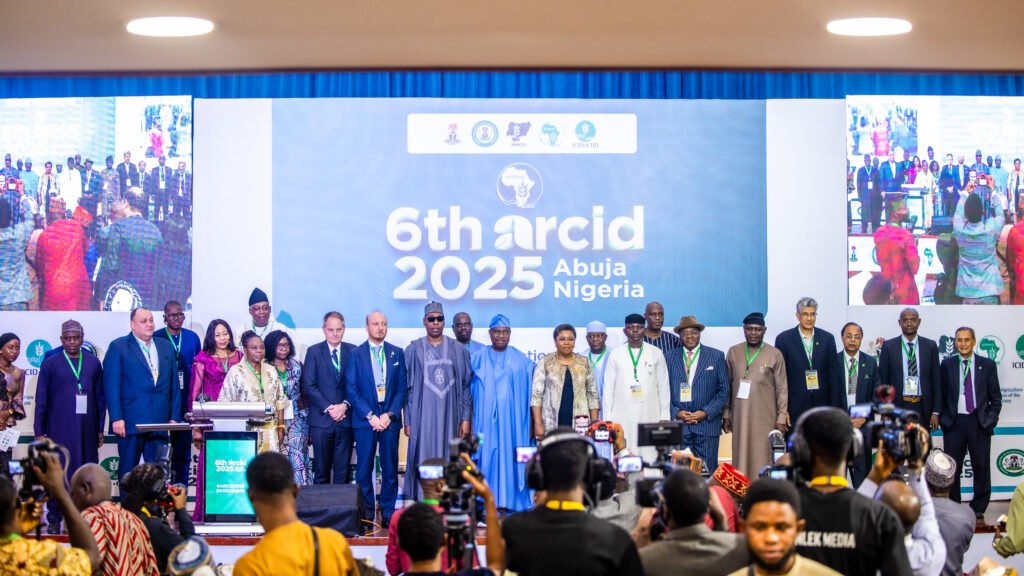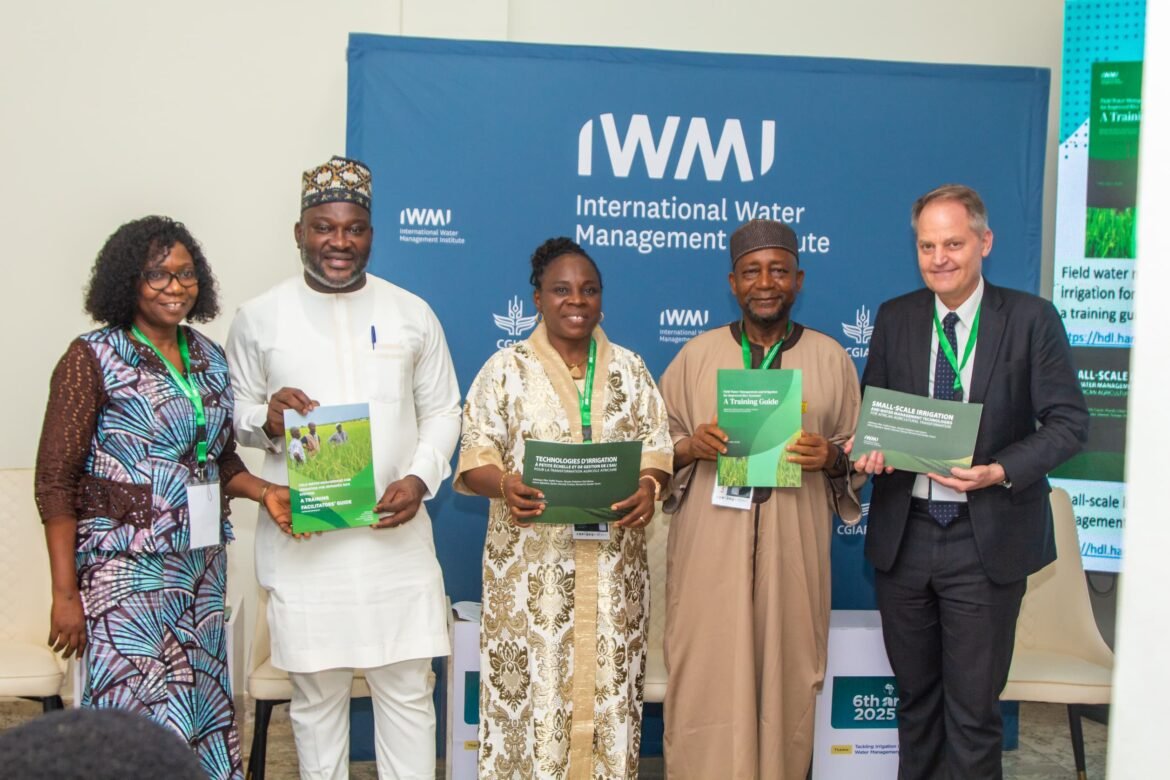…….As FG declares National Emergency on Food Security
As part of efforts aimed at achieving food security in Africa, the International Water Management Institute (IWMI) has launched a 6-year strategic plan 2024-2030 which seeks to enhance Water Security and Sustainable Agriculture in Africa.
The Director General, International Water Management Institute, Dr. Mark Smith while speaking in Abuja at the 6th African Regional Conference on Irrigation and Drainage stated that the strategy will address water and agriculture challenges while offering solutions aligned with the food security goals set by the Nigerian government.
Smith noted that the institute’s new strategy will focus on four primary areas such as watershed restoration, improved irrigation systems, water reuse, and farmer-led irrigation adding that the initiatives are integral to ensuring food security and resilience against climate shocks particularly as African nations grapple with rapidly changing climate conditions.
“The IWMI Strategy outlines an ambitious agenda for research and innovation in water security. We are committed to practical, inclusive, and climate-smart solutions to enhance agricultural sustainability”.

He however emphasized the need for a broader conversation about the need to restore watersheds and improve the management of water resources to optimize agricultural productivity.
Earlier in his address, Nigeria’s President, Bola Tinubu noted that addressing Africa’s agriculture challenges required urgent action, hence the need to expand irrigation infrastructure and adopt innovative water management strategies.
Tinubu, represented by the Secretary to the Government of the Federation, Senator George Akume noted Africa is challenged in unlocking its irrigation potentials hence the conference offers a vital platform to collectively chart a path forward.
Tinubu however emphasized the need for collaborative efforts across African nations to overcome the hurdles of inadequate infrastructure, financial constraints, and climate change.
Minister of Water Resources and Sanitation, Prof. Joseph Utsev on his part stated that the Transforming Irrigation Management in Nigeria (TRIMING) project has birthed key infrastructure developments like the Dadin-Kowa and Bakolori irrigation schemes which has made notable progress in improving irrigation systems across Nigeria.
Prof. Utsev while emphasizing the need for continued investment in sustainable water management solutions also announced that the Sustainable Power and Irrigation for Nigeria (SPIN) project which will be implemented in partnership with the World Bank will further advance these efforts.
“With the TRIMING project winding down, Nigeria is poised to begin the SPIN project, which will build on our past successes and further expand Nigeria’s irrigation potential”.
In her remarks, IWMI’s Africa Director for Research Impact, Dr. Funke Cofie said that IWMI strategy which complements Nigeria’s domestic initiatives also promotes water reuse and farmer-led irrigation practices.
Dr. Cofie explained that these interventions have enabled farmers to expand irrigable land and improve crop yields which is critical to ensuring food security in drought-prone regions.
“We are focused on empowering farmers and restoring ecosystems to make agriculture more resilient to climate change. This initiative aligns directly with the Nigerian government’s goal to create a more sustainable agricultural sector.”. She added.
Addressing the impact of climate change on agriculture, Gov. Babagana Zulum of Borno State warned that unpredictable rainfall patterns and shrinking farming seasons were becoming major threats to food production.
He called for more investment in irrigation and innovation stressing that these measures should not be viewed as luxuries but essential tools for ensuring food security.
“Irrigation is now a necessity, not a luxury. Innovation must not be seen as a privilege of the few—we must empower women and youth who are at the frontline of agriculture”.
President of the International Commission on Irrigation and Drainage (ICID), Dr. Marco Arcieri also weighed in on the need for strategic innovation in water management and agriculture.
Arcieri emphasized the importance of youth involvement in finding sustainable solutions to Africa’s water challenges noting that young professionals will play a critical role in future-proofing agriculture against climate change.
As the conference progresses until April 17, 2025, participants will engage in technical sessions, policy dialogues, and field visits to various irrigation sites across Nigeria, fostering a deeper understanding of best practices and innovations that can transform Africa’s agricultural sector.
The partnership between the Nigerian government and the IWMI exemplifies the continent’s collective commitment to improving agricultural resilience and water management.



